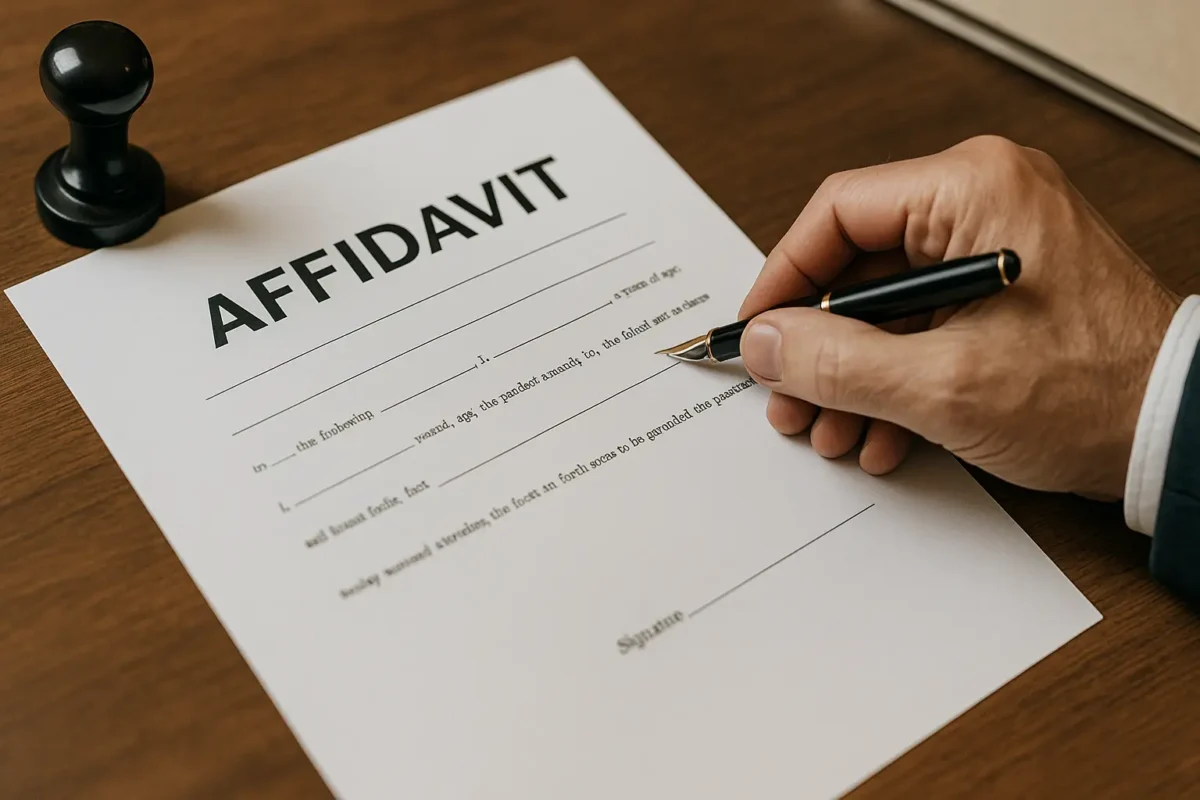What Is an Affidavit in Legal Terms?

An affidavit is one of the most widely used legal documents in both civil and criminal cases. It is essentially a written statement of facts, confirmed by oath or affirmation, and signed in front of an authorized official. Affidavits play an important role in courts, business dealings, and administrative processes, serving as reliable evidence when oral testimony is not practical.
Simple Definition
An affidavit is a sworn written statement made voluntarily by a person, where they declare that the information provided is true to the best of their knowledge. It must be signed in front of a notary public, judge, or another official authorized to administer oaths. Lying in an affidavit can lead to perjury charges, which carry serious penalties.
Real-Life Examples
- Court proceedings: A witness provides an affidavit recounting what they saw, instead of appearing in person.
- Business transactions: A person signs an affidavit confirming ownership of property.
- Immigration cases: Applicants submit affidavits from family members to support their claims.
- Financial matters: Affidavits are used to verify income, debts, or other financial details in legal disputes.
Importance of the Term
- Evidence in court: Affidavits can substitute for live testimony in certain proceedings.
- Efficiency: Speeds up legal processes by providing written, sworn statements.
- Accountability: Since affidavits are sworn under oath, false statements may result in perjury charges.
- Versatility: Used across civil, criminal, business, and administrative contexts.
Comparison (Affidavit vs. Testimony)
| Factor | Affidavit | Testimony |
|---|---|---|
| Form | Written, sworn statement | Oral statement in court |
| Oath | Taken before a notary or official | Taken before a judge in court |
| Use | Submitted as documentary evidence | Presented in person at trial |
FAQ
1) Who can write an affidavit?
Anyone with firsthand knowledge of the facts, as long as they swear to its truth before an authorized official.
2) Is an affidavit legally binding?
Yes. It is legally enforceable and false statements can lead to perjury charges.
3) Do affidavits need witnesses?
Not usually. They must, however, be signed in front of a notary public or similar authority.
4) Can an affidavit replace live testimony?
In some cases, yes, but courts may still require a person to testify in person.
5) Are affidavits used outside the U.S.?
Yes. Many legal systems worldwide recognize affidavits as valid evidence.
Closing
An affidavit is a sworn written declaration that ensures honesty and reliability in legal matters. Its use across many areas of law highlights its importance as both a practical and protective legal tool.






